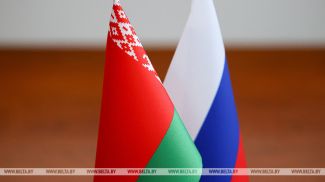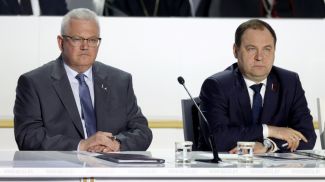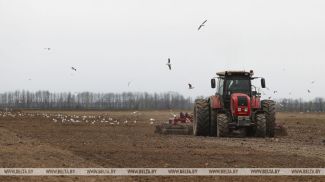MINSK, 1 March (BelTA) – The Council of Ministers passed resolution No.103 on 24 February 2021 to adopt the government program on energy conservation in 2021-2025. The press service of the Energy Effectiveness Department talked to a BelTA reporter to explain novelties of the program.
The program has been worked out to inhibit the gross growth of consumption of fuel and energy resources, bring Belarus' GDP energy intensity closer to the world's average, and make as many domestic fuel and energy resources as possible part of the country's fuel mix, including renewable sources of energy.
Efforts to reduce the GDP's energy intensity and increase energy generation from renewable sources of energy will be exercised as part of the program. The work is fully compliant with the Sustainable Development Goals, in particular, the need to enable universal access to cheap, reliable, stable, and modern sources of energy for everyone.
Strategic energy conservation goals for the period till 2025 include: reducing the GDP energy intensity by at least 7% in comparison with 2020 with the GDP growth rate at 121.5% in 2021-2025, increasing the share of local fuel and energy resources in the overall consumption to at least 16.5%. These efforts and electricity generation by the nuclear power plant will help the country's achieve standard energy self-sufficiency.
The program contains two subprograms that focus on ways to increase energy effectiveness and on efforts to encourage the use of local fuel and energy resources, including renewable energy sources. The key goals of the subprograms is to save fuel and energy resources to the tune of 2.5-3 million tonnes of reference fuel and increase the share of renewable sources of energy to at least 8% in 2025.
The main measures designed to reach these goals and hit the targets include the implementation of a set of energy-saving measures by government agencies and the regions, including within the framework of international projects, the construction of energy sources that use local fuels, including renewable sources of energy, the introduction of an energy management system, and the annual reduction of energy intensity in manufacturing products and providing services, including the provision of heat and electricity.
Further improvement of energy effectiveness will be achieved through the implementation of fundamental energy-saving measures. In particular, manufacturing enterprises will be further upgraded and retooled and will introduce modern science-intensive resource and energy-saving technologies, equipment, and materials. The implementation of technical energy-saving measures designed to increase the consumption of electricity instead of crude hydrocarbon fuels will help achieve the same goals. It will also be necessary to increase the usage of low-potential secondary energy resources, optimize the consumption of heating energy by means of thermal modernization of apartment houses with assistance of financial resources of the apartment owners. The program also provides for developing the production of electric transport, electric transport components, and charging infrastructure. The program will encourage the use of electric vehicles, hybrid vehicles, and the development of the charging infrastructure. Urban passenger transport will switch to electric vehicles in order to stop using hydrocarbon fuel. The program also specifies other measures with energy conservation in mind.
As part of the program about 650MW of power plants that burn wooden fuel will be commissioned in 2021-2025. It will allow increasing the consumption of local fuel and energy resources by about 180,300 tonnes of reference fuel and respectively decrease the consumption of imported natural gas by 156.8 million m3.











